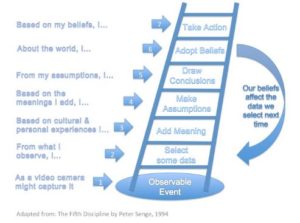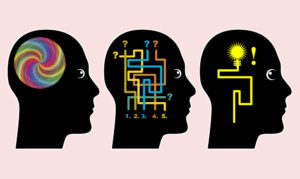 Mentoring clients studying coaching skills in my mentoring programs often ask whether doing “pure coaching” sessions is a realistic expectation. Pure coaching refers to when the coach stays in “coaching mindset” through an entire coaching session, refraining from giving unasked-for advice, tips, tools, articles, books, or other resources.
Mentoring clients studying coaching skills in my mentoring programs often ask whether doing “pure coaching” sessions is a realistic expectation. Pure coaching refers to when the coach stays in “coaching mindset” through an entire coaching session, refraining from giving unasked-for advice, tips, tools, articles, books, or other resources.
If a client asks for advice such as, “What would you do in my situation?” there’s a coaching approach to responding, or a mentoring/teaching/advising approach to responding. Perhaps that would be called a Hybrid Approach. More about the distinctions further below.
Butterfly on the Wall Coaching Series
Because this is an ongoing topic of discussion among coaches who want to be coaching when they are hired to coach, I was fortunate and grateful to be able to record one coaching client for 16 consecutive coaching sessions, and all sessions were “pure coaching.”
coach, I was fortunate and grateful to be able to record one coaching client for 16 consecutive coaching sessions, and all sessions were “pure coaching.”
That series is available for purchase and is called the “Butterfly on the Wall Coaching Series”
Where does the inquiry about “pure coaching” come from?
The conversation has been present for at least 20 years from my personal experience because providers of ICF approved coach education programs teach coaching skills according to the ICF Core Competencies.
The conversation further emerges when a coach applies for their ICF ACC, PCC or MCC credential and as part of the exam process, are required to provide one or two coaching session recordings demonstrating their coaching skills. ICF refers to submitted coaching recordings as Performance Evaluations. Recordings are assessed using the behaviors defined by the ICF for each skill level, called ACC Behaviors, PCC Markers and MCC Behaviors.
 What coaches often encounter when seeking coaching engagements is a different mindset about what coaching is, than what the coach has been trained in. Coaches are often expected to do much more than coach.
What coaches often encounter when seeking coaching engagements is a different mindset about what coaching is, than what the coach has been trained in. Coaches are often expected to do much more than coach.
When I interview with a coach to explore participation in the mentor coaching program, I ask how I can be of help to them. Often the coach will share they know they default easily to giving tips, sharing tools, strategies, models or other resources, and want to get back to practicing “pure coaching skills.” And yes, they are aware they will need to demonstrate “pure coaching” in order to pass their ICF credential.
That’s because ICF stands for accreditation of coaching skills training, and certification in those skills at different levels of competence. As well as providing a professional organizational approach to ethics and standards. That is ICF purpose; to advocate for coaching skills.
Then it’s the responsibility of each professionally trained and credentialed coach to do their best to use their coaching skills when employed as a coach. A coaching exam is about demonstrating coaching skills. Taking those coaching skills into the marketplace will often require to do our best to always be using coaching skills or a coach approach when engaging the client with models, assessments, resources, etc. While also “negotiating” with clients on what other mindset/approaches they might consider important.
Where Coaches encounter expectations for a hybrid approach
A coach may be asked to do more than pure coaching by;
- Coaching companies that contract coaches to work with their clients
- Organizations paying for coaching of their employees
- Internal coaches
- Coaching clients sourced through coach own marketing
Ways to respond to a prospective employer of coaches 
When a coach interviews with a prospective employer of coaching, first is to ask questions to understand their mindset about coaching, in order to achieve alignment in understanding on the coaching process and expectations.
Basic to any coaching education program is learning how to curiously ask open-ended questions that clarify and explore. We apply this questioning skill to asking about their coaching model, definition of coaching, beliefs about coaching, and their expectations of what a coach does or doesn’t do when employed by them as a coach.
By exploring the above, it might be determined that a training approach is initially more effective. For example, new managers could be provided with training in what a new manager does, followed with a coaching engagement to personalize the implementation, sustainability and accountability for use of learning from the training. There are self-learning programs a company can purchase to support train new managers.
 Many employers of coaches understand the value of pure coaching too. Many heads of coaching departments and organizations are trained coaches themselves, meaning they’ve invested in understanding coaching because they’ve completed a comprehensive beginner coaching skills program (such as a 60 hours, Level 1 ICF accredited coaching education program). This means they can then better determine the coaching skills of a coach they might employ to work in their organization. A weekend coaching skills training isn’t enough to understand the full range of coaching skills.
Many employers of coaches understand the value of pure coaching too. Many heads of coaching departments and organizations are trained coaches themselves, meaning they’ve invested in understanding coaching because they’ve completed a comprehensive beginner coaching skills program (such as a 60 hours, Level 1 ICF accredited coaching education program). This means they can then better determine the coaching skills of a coach they might employ to work in their organization. A weekend coaching skills training isn’t enough to understand the full range of coaching skills.
By asking clarifying questions of a prospective employer, even before demonstrating your coaching skills to them, you’ll better be able to determine if you can meet their requirements and be able to coach “their way.” Or decline to interview further. For me, in the interview process, if the expectation of a prospective employer is for me to act more as consultant, advisor or mentor, I decline.
Internal Coaches
Coaches employed within a company to coach employees, often have access to an intranet or learning portal. Again, there is a training approach to exploring an intranet resource, or a coaching approach. Ascertain what outcome the coachee is seeking to achieve, perhaps a resource from the intranet can be sourced by coachee, or recommended by coach. Coachee can read, listen, or watch the resource, and bring questions to the next coaching session. Coach an client can then define a coaching focus/outcome for the coaching session, to take the information into a coaching conversation.
Another approach is for coach to overview the information as simply as possible, then use their coaching skills to explore client understanding and what client wants to do with the information. Again, using a coaching session structure to support a professional coaching conversation.
Pre-Coaching Phase
I’ve previously written articles about separating the upfront process in a coaching engagement to be the “consultative phase.” When speaking with a prospective employer of coaching, clarify and agree on what the pre-coaching phase includes. This could be brief or robust in nature, including the client completing a short or extensive self-questionnaire. There could be personal interviews conducted by the coach (my personal favorite tool) with people who interact with the coachee. There’s a wide range of self assessments that may be used which may include identifying tolerations, personal values, personal needs, personal strengths, emotional intelligence, behavior preferences, personality type, motivations… All of this is information gathering, with coach debriefing with the client in the role of consultant, as the coach holds the expertise in the assessment / debriefing.
That is the pre-coaching phase. The output of that information could be a client-designed development plan, with coach asking questions or offering observations to support client to complete their plan. Sometimes my coachee will be presenting their development plan to their manager, in which case I want them to have full ownership for everything in the plan, not saying that their coach suggested what goes in the plan.
How to respond to a coaching client wanting advice within a coaching session
What happens in a coaching session when a client asks their coach for their ideas, thinking or advice such as, “What would you do in my situation?”
As part of the contracting phase, I explain how I approach their requests for advice from me, which includes inquiring about what they’re already thinking about. Once they explore their thinking, I may offer some observations. Or I might then “offer” some things that have worked for others, and be clear I’m not implying that is what the client should do. Because ultimately I don’t really know what is best for them; it’s their decision because they have to implement, not me. I also want to stay out of any ethical area, where I might be seen as giving advice, that if it doesn’t go well for the client, could become a legal issue.
When a client then still asks for my opinion or advice, captured in the question of “What should I do?” I’ll ask them if first they can share their thinking, then I can determine what they’re already considering, not repeat anything they’re already thinking about. And then add anything more if I feel it would be of benefit to. Most often I don’t find any need to add, as the client really had more ideas or understanding than they realized, once they have the space to reflect and consider. However, if there is something, I’m going to “offer” not state as “the thing” to do.
Ways to share a model, or tool, with a client in a coaching session
The pre-coaching phase can be a place to introduce models or information that are my approach and even have a session or two to discuss models. That is the consulting phase to me.
If the client wants to further discuss any model or information in a coaching session, I ask questions to understand what they are seeking to understand. I use a coach approach to exploring a model. If there is a model or information I feel might benefit a client in the moment, I check in with myself if it’s necessary to share the model, or can I instead use my knowledge of the model to design questions to ask.
 For example, using the Ladder of Inference model, the client might never know I’m referring to the model, yet my questions are informed by the model.
For example, using the Ladder of Inference model, the client might never know I’m referring to the model, yet my questions are informed by the model.
Example questions might be;
- What information are you drawing from?
- What meaning are you making of that information?
- What data are you ignoring?
- What assumptions are you making?
- How are your interpretations aligned with your values, or not?
- What are you sensing or feeling about the information?
- What conclusions are you making?
- How do those conclusions inform your decision/s from here?
The above is often more powerful than just sharing the model with the client because the client is doing the thinking, reflecting, considering, creating their own connections and awareness.
Assessments during a coaching engagement
As a coaching engagement progresses, there may be an assessment you feel would be of benefit to the client. Well, it’s the knowledge as a result of the assessment that’s really of benefit :-). For example, it may be an Emotional Intelligence Assessment seems appropriate to offer a client as the coaching engagement progresses because you sense the client is more open to exploring emotional information now that you’ve established trust with the client.
If the client agrees to completing the assessment, consider calling this a “pause” in the coaching sessions. Debrief the assessment (expert/consulting mindset). Allow the client time to then reflect on the output of the assessment. Then the coaching can recommence as the client will be able to determine how they want to use that information, in the context of their coaching objectives.
Continually educate those who employ coaches
It is our responsibility as Professional Coaches, to continually educate people who employe coaches on what coaching is, how the coaching process, and importantly as well, how a coaching session is structured.
Clients I’m able to do pure coaching with tell me how much they gain from the questions I ask that they never thought of. I prefer to work with clients outside my background or area of business experience, which means I can really use my coaching skills without bringing industry experience, which could be limiting.
I know, that might be counter to some beliefs, yet to quote Albert Einstein, “You cannot solve a problem with the same mind that created it.”
If more companies employed coaches without their same industry background or even same level of experience, perhaps more “pure coaching” would occur and more innovative and creative solutions would be available to the client.
Experience pure coaching
An effective way to learn about the benefits of pure coaching is to employ a coach who can be a pure coach, someone you know is professionally trained, knows how to structure a coaching conversation and use coaching skills at a high level. This is what I do personally; hire a coach to just coach me. Then separately I employ consultants or experts such as to develop my online business presence. I may be coached on how I want my business to grow, yet I don’t use my coach to mentor or train me on business development. Which means I employ a coach for their coaching abilities, not their consulting, experience, or mentoring abilities. As such, I’ve never employed a coach with the same business experience as I have, or I want to have. I use consultants for that, and a coach to coach me.
As a newer coach, it can be effective to employ a mentor coach, with the agreement that sometimes you’ll ask for pure coaching, and other times for mentoring. This is the approach I engaged for the first 2 years after attending 125 hours of coaching education. I asked my coach to be pure coach sometimes, to support me to experience pure coaching. Especially as I’d come from consulting and wanted to learn how to have a coaching mindset. Sometimes we’d do 30 minutes of coaching session, and 30 minutes of mentoring. Other times, 60 minutes of coaching, or 60 minutes of mentoring.
In closing…
For me, pure coaching is the most satisfying form of coaching, and it’s a joy to observe clients think for themselves, feel satisfied, inspired, have ownership and feel motivated to implement what they’ve discovered. They also know the ongoing coaching process is there to support them when they don’t implement what they thought they would, and to support them get unstuck quicker.
What most clients benefit from is dedicated time to think, reflect, and to hear their thoughts and experience their feelings. And have thoughts, ideas and insights that will support them to move them forward.
Written by Carly Anderson, MCC
Are you ready to upgrade your coaching skills, prepare for your next ICF credential, or renew your credential?
The Mentor Coaching Group Program is an ICF approved individual / group mentor coaching program. Approved for 30 of ICF Core Competency CCEs, including 10 hours of mentor coaching. For comparison between my MCC program, and Level 3, go to Q6 on FAQs page
Mentor Coaching Programs Now Open!
visit this page for more information
 I offer a rich, experiential mentor coaching group and individual program that has many exclusive offerings for participants. You can read some testimonials from real people,FAQs, or find out more about The Mentor Coaching Program here
I offer a rich, experiential mentor coaching group and individual program that has many exclusive offerings for participants. You can read some testimonials from real people,FAQs, or find out more about The Mentor Coaching Program here
I offer other products including The Upgraded Target Approach: Clarifying the ICF Core Competency Model, as well as Ten Characteristics of MCC Skill Level. And a very unique opportunity to hear 15 consecutive coaching sessions with one of my clients in the Butterfly on the Wall Coaching Series.
A long term experienced and continuously active MCC Assessor since 2005, assessing and mentoring for all 3 credential levels. Including being trained to assess using ICF ACC Behaviors, PCC Markers, and MCC Behaviors. As at January 20, 2025, 210 of the coaches I’ve mentored for their MCC preparation have passed ICF MCC exam process, as well as hundreds of coaches passed their ACC and PCC exam process. I do my best to communicate ICF publicly available credential information in a simple manner. Mentoring Supervision clients have access to an incredible and exclusive member-only library that includes 40+ coaching recordings that have actually passed ICF MCC, PCC and ACC credential process.
I’m passionate about supporting the professionalism of coaching, which includes often engaging in ICF projects as a volunteer to continue to develop and evolve our profession.



